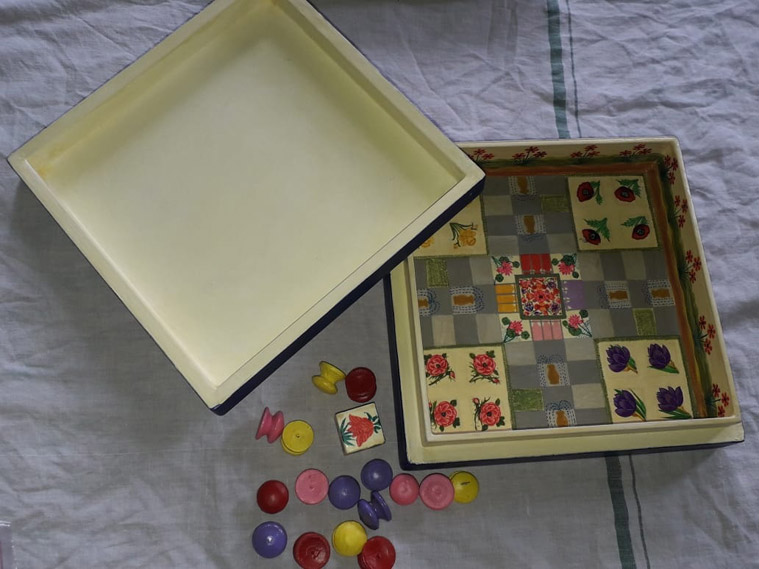Kashmir’s famed papier mache artisans are celebrating Christmas early this year as they have received orders in bulk for their products from within the country as well as abroad ahead of the festival.
The sector, like most others, was hit by the COVID-19 pandemic and the orders had largely stopped coming for the last couple of years. However, this year’s bulk orders are set to give a new lease of life to the craft and have brought cheer among the artisans.
Mohammad Maqbool, a resident of the city’s Lal Bazar area, is busy giving finishing touches to his papier mache products.
“We have received bulk orders this year, especially for the European markets, and it is a good sign,” Maqbool told PTI.
The artisans are making several products such as stars, moon, eggs, balls and elephants, which are used for decoration as well as gifts.
“The artisans were waiting for Christmas. We have to focus on new designs. Some designs are sent to us by the customers. We get orders from India as well as abroad,” Maqbool said.
 Kashmiri papier mache sales are expected to see a rise (Photo: Hakim Gulam)
Kashmiri papier mache sales are expected to see a rise (Photo: Hakim Gulam)
Another artisan, Zahid Hussain Beg, said the number of orders for papier mache products had decreased over the last few years due to Covid but this year is different.
“The demand is high during festivals. We are usually busy during Christmas. Orders have come in good numbers this year and there has been a lot of work,” Beg said.
Papier mache is one of the most popular crafts practised in Kashmir and has its origin rooted in the 15th century when king Zain-ul-Abidin invited accomplished artists and craftsmen from central Asia.
Papier mache is a unique combination of line and colour on moulded forms of a variety of objects. It involves ornamentation in colour over smoothened surfaces built of paper pulp or layers of paper.
Describing the bulk orders as a good sign, officials in the handicrafts and handloom department of Jammu and Kashmir expressed hope that the export value of the papier mache items will go up and provide a much-needed boost to the craft.
“It is a good sign that orders have poured in. The Christmas balls segment is so enormous that at times, we are not able to meet the demand because the process of making these items by hand is time consuming. There have been efforts to semi-mechanise it, but not much success has been achieved,” Director, Handicrafts and Handloom, Kashmir, Mehmood Shah, told PTI.
Shah said papier mache involves two sets of artisans — the sakhta makers and the painters — and both have to compliment and supplement each other.
“Only then will the final product hit the market,” he added.
Shah said the exports, primarily to Europe, are usually worth about Rs 13-15 crore. However, due to Covid, several orders were cancelled in the last couple of years.
“Thankfully, this year, we are gearing up for Christmas orders and hopefully, the export value of the papier mache items to Europe will go up,” he said.
While there is demand for such products, the craft faces many problems, including a lack of artisans. It is primarily due to the fact that the younger generations are not interested in learning the craft or taking it up professionally.
“The demand is there, but the production is low. We have orders for about 10 lakh balls. We need to increase our production. We do not have many artisans to cope up with the bulk orders we get, especially at the time of Christmas,” Maqbool lamented.
He said the artisans request the exporters to increase the wages. “Then only will the younger generation take up this craft.” Shah said the craft is not restricted to day-to-day items only.
“We have papier mache being done on walls, as a fusion with Khatamband (traditional wooden ceilings),” he said.
“We need to tap new markets, go aggressively on e-platforms so that more livelihood opportunities are generated,” he added.
Shah said the department is likely to launch a QR-based GI label for papier mache items soon so that it gives the product its authenticity.
Source : TheIndianExpress


